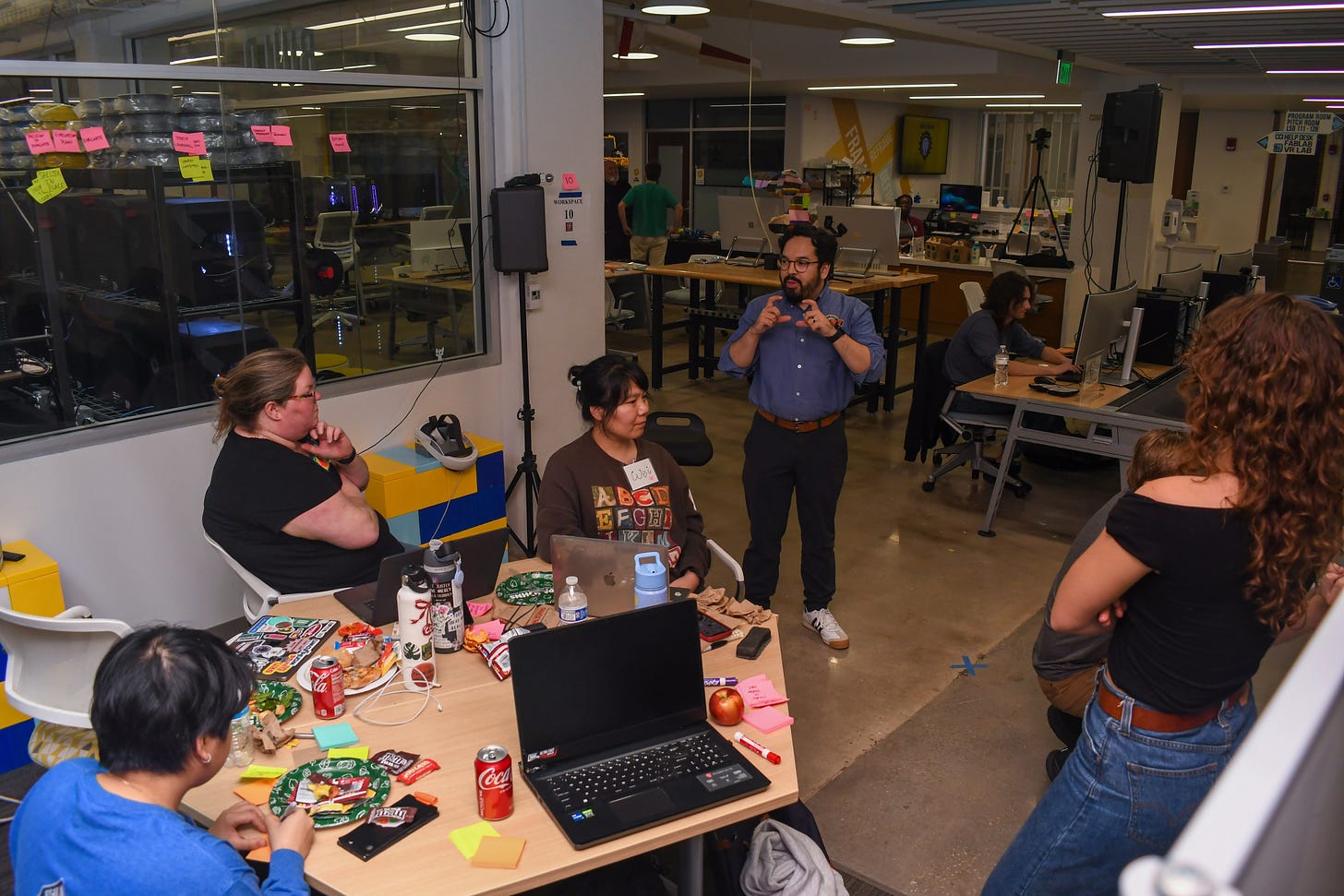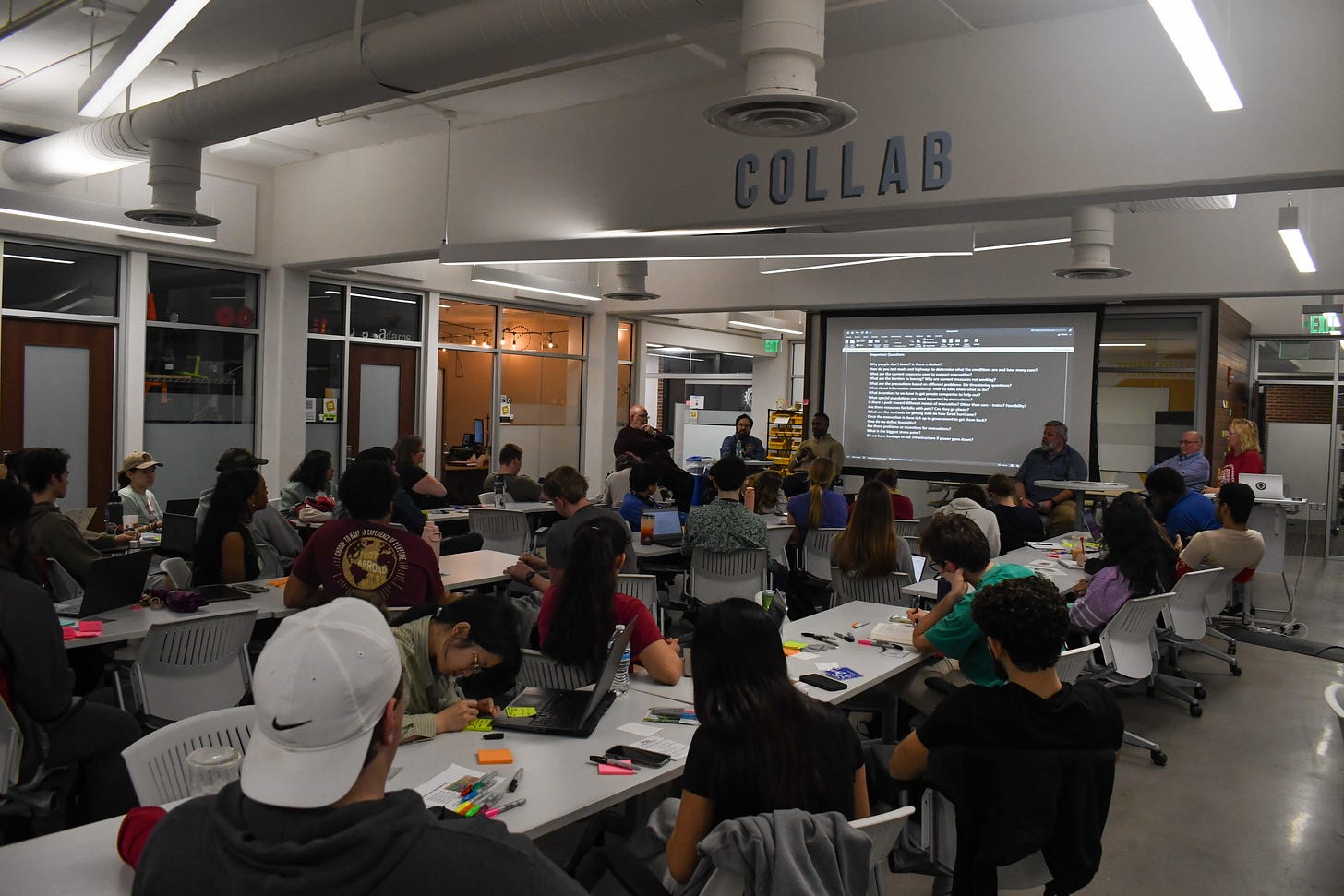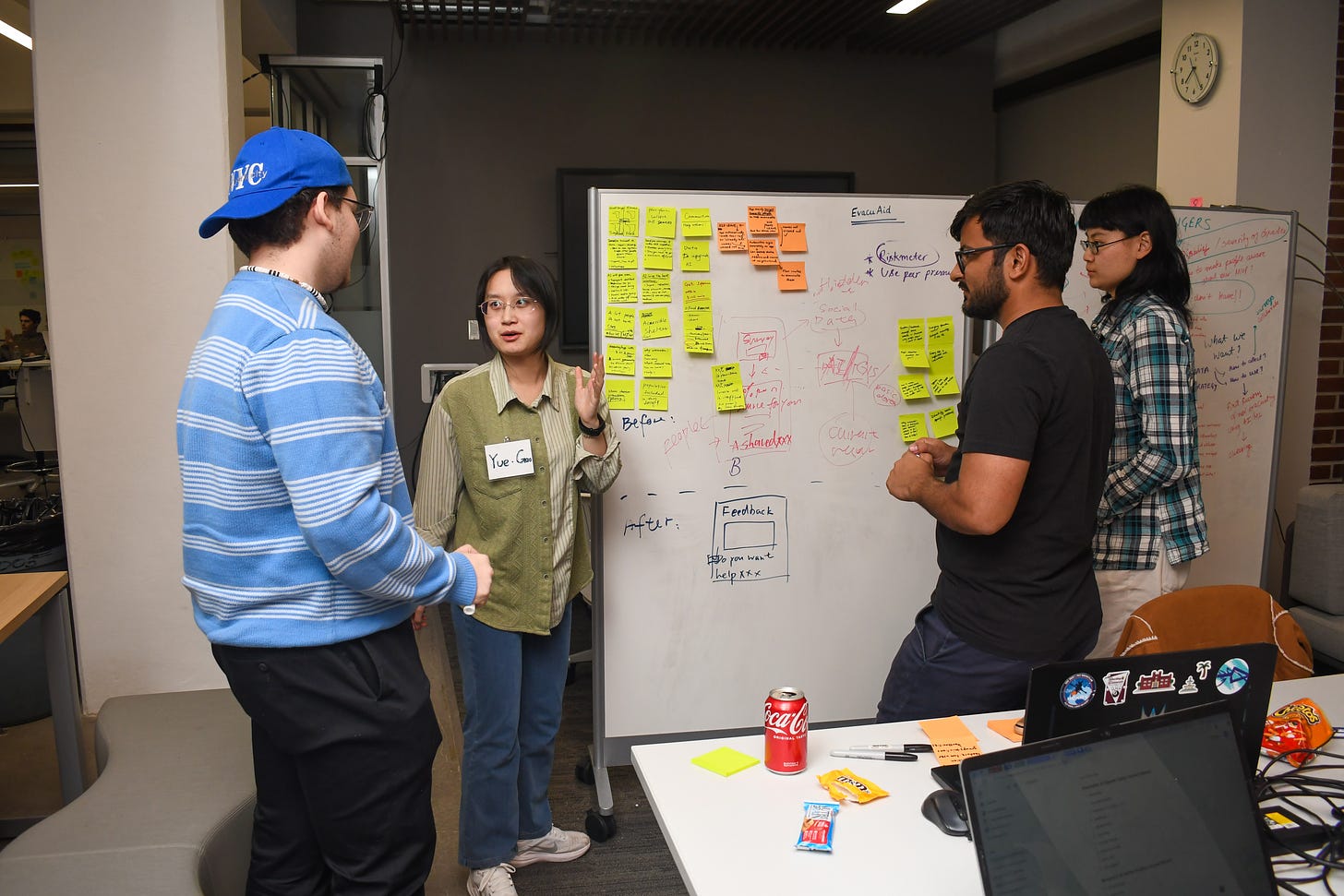This past weekend, FSU’s Innovation Hub held their fifth 24-Hour Design Sprint. During this event, the Innovation Hub collaborates with another department on campus in order to develop a real-world challenge in relation to the department for students to solve. Students begin by being assigned into randomized groups and are introduced to what the challenge will be. Followed by this, there is a Q&A session with a panel of experts to answer any initial questions participants may have. They are then given 24 hours to develop and pitch an innovative solution to the question posed, competing against the other teams for a prize.
The goal of an event like this is to immerse its participants in Design Thinking strategy, known as Empathize, Ideate, & Build. With such a fast-paced, immersive event, they are given the opportunity to grow in creativity, confidence, teamwork, and empathy. By the end, students are expected to reflect on what innovation means and demonstrate that in their final presentations.
In past 24-Hour Design Sprints, students were challenged to come up with solutions to issues that impact not only the general public, but also may relate to the participants themselves. The Hub’s first ever Design Sprint was held in April 2023, where they solved the following issue: How might we design a home environment with the needs of aging individuals to provide the care and comfort they need to spend their latter years happy and healthy at home? The winning team, “The Guardian Angels,” came up with a design for a ”smart bed” that ensures REM sleep cycles to combat insomnia, along with other related illnesses. Following Design Sprints asked participants to solve problems relating to power outages, human trafficking awareness, and energy consumption in Florida homes.
For this most recent event, “Rapid Relocation Mission,” the Innovation Hub collaborated with FSU’s College of Social Sciences & Public Policy. This mission asked students to answer the following question: How might we promote better and more complete evacuation of individuals living near Florida’s coasts? Approaching an issue like this appeals to many people across majors, as it is such a locally-centered problem
Commercial Entrepreneurship major Johanna Rubin has learned a lot, as it was her first time participating in the 24-Hour Design Sprint. After taking a class in the Innovation Hub this semester and hearing about the event from Wesley Dorce, Asst. Director of Experimental Learning, she was excited to learn from such a special experience: “I’ve learned a lot about the process of Design Thinking and how to work with so many different kinds of people, and pull from their experiences for this project.” The Innovation Hub’s ability to bring together different people all across FSU’s campus is what makes events like this so important, not only to its students, but also to the future of innovation and collaboration.
Once the final presentations were given, the panel of volunteer experts and judges came to a decision about which team’s solution to this Design Sprint’s challenge helped combat the issue presented the best. This semester’s winner was Team “Storm Vision”, whose solution consisted of an augmented reality app to display the potential impacts to a user’s surroundings during an incoming storm, ranging from light to catastrophic damages. After such a successful experience, the Innovation Hub hopes to continue holding these Design Sprints, as the possibilities for FSU’s students and staff only continue to grow.
Below is a link of the winning presentation from Storm Vision: Esraa Arar, Zachary Merashoff, Sage Quillen, Jennnifer Rabideau, Tyler Reimer
https://docs.google.com/presentation/d/196LuOxlcO3cyjFVGvm8qPq0YtbpIof_zTZsKQufozwE/edit?usp=sharing







